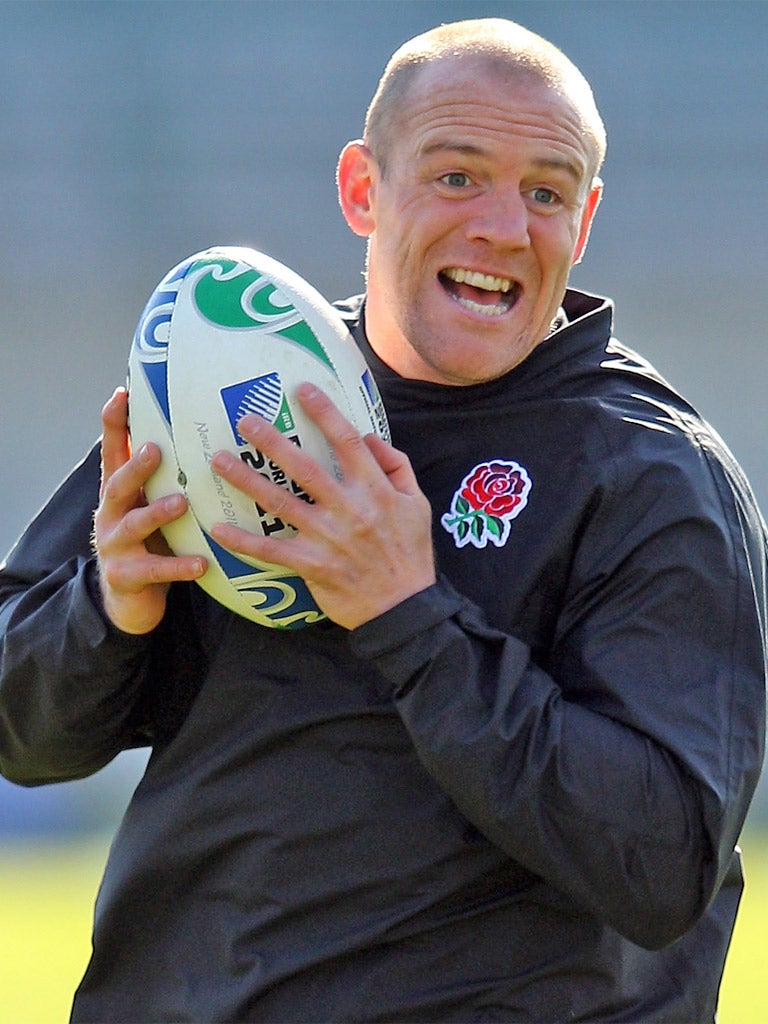James Lawton: The 'scapegoat' and dysfunctional rabble make for sorry tale
Mallett is a figure who has already poured scorn on the concept of a director of rugby

There is not a lot that can be done for the Rugby Football Union or the equally misguided Rugby Players' Association. Not, at least, until the former "organisation" manage to persuade someone from outside, ideally from the grown-up rugby world of the southern hemisphere, to begin the job of cleaning up the mess which seems to become a little more profound each day.
Except, maybe, explain the meaning of the odd word.
Most pressingly, this involves pointing out that Mike Tindall, who has been restored to the elite list of England rugby players after his days of wine and somewhat wilted roses during the World Cup in New Zealand, could never in a thousand years be likened to a goat upon whose head are symbolically placed the sins of the people after which he is sent to the wilderness in the Biblical ceremony of Yom Kippur. If it was true, this would of course make Tindall a "scapegoat", the absurd description applied to him by the RPA chief executive Damien Hopley, and which was presumably accepted to a certain degree by the departing RFU chief executive Martyn Thomas when he restored the former England vice-captain to the elite list of players and trimmed his fine from £25,000 to £15,000.
Naturally, Tindall endorses the acceptance of his status as martyr/scapegoat. Quite nauseatingly, he was also saying yesterday that he felt quite vindicated.
It is scarcely believable. Scapegoats carry the blame of others. Whatever the confections of this week's appeal, restoring Tindall to the elite list of players is not so much stepping into the past as ransacking the meaning of every worthwhile contribution by English players who have ever aspired to properly represent their country. Tindall's guilt is heaped up around him: his guilt, his irresponsibility, his parody of leadership and good sense.
As vice-captain of the World Cup squad, and the most experienced player, he actively trashed manager Martin Johnson's keynote policy of trusting his players. He defied Johnson's requirement that his men behave, in lieu of any formal disciplinary requirements, like good blokes and properly adjusted adults. Then he lied to Johnson and refused to make any kind of public apology which might just have enabled the besieged manager to retrieve a little of the high ground that had been so shamelessly cut from beneath him.
The suggestion that the original disciplinary hearing conducted by elite rugby director Rob Andrew, who has his own charges of negligence and job definition to answer, was somehow more about vengeful window dressing than natural justice, invites another question.
What exactly constitutes a grievous offence against the good name of English rugby and just cause for removal from the list of players deemed fit to go on to the international stage?
The ground is surely narrowed quite dramatically if it does not include publicly tottering around in a drunken stupor at the formative stage of a World Cup and then refusing to accept any public responsibility for a terrible dereliction of professional duty.
You might say that Tindall warrants some special consideration in view of his heroic past – and especially his contribution to the 2003 World Cup triumph. This, though, does not square with the concept of a modern professional team in which values are re-stated every time the players assemble for fresh action. Tindall had his glory – and eight years of rewards – and when Johnson asked the classic question, "What are you going to do for me today?" his response was, essentially, "get stupendously pissed and spend hours in public places canoodling with an old girlfriend".
Such was Tindall's reaction to what seemed certain to be his last call to arms and that he should now be restored to professional respectability, even to what might be deemed a status of some honour if playing for England hadn't become a working metaphor for futility, is maybe the ultimate statement on what increasingly appears to be the RFU's collective descent into a dysfunctional rabble.
Perhaps, though, there is a pinprick of light in a very dark sky now that Nick Mallett, the man-of-the-world South African coach, has confirmed that he might just be available for the long haul.
Mallett seems particularly well attuned to the challenge. He is a self-confident figure who has already poured scorn on the concept of a director of rugby. Sir Clive Woodward didn't need one, Mallett points out, no more than Graham Henry when he finally nailed down the first All Black World Cup triumph in 24 years. Leaders lead – and shape the environment of successful teams.
England should get one very soon. This was hardly a debate before the retreat on Tindall but now there isn't a last shred of doubt. They need more than help. They need to be re-made, from the head down.
Subscribe to Independent Premium to bookmark this article
Want to bookmark your favourite articles and stories to read or reference later? Start your Independent Premium subscription today.

Join our commenting forum
Join thought-provoking conversations, follow other Independent readers and see their replies